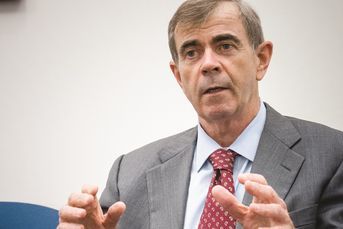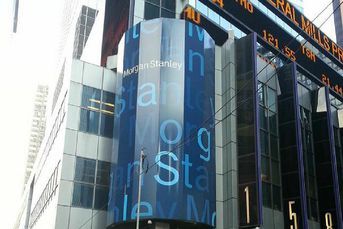Wealthy families boost private-equity bets in reach for yield, UBS report shows
Private equity had the biggest rise in asset class allocation in family office portfolios.
Wealthy families are increasing their bets on private equity, focusing more on alternative investments after a difficult year for returns, according to a report from UBS Group AG and Campden Wealth.
Family offices are “absolutely clamoring” to do more co-investing in alternative investments, with 51% seeking to increase such holdings, the firms said in their annual Global Family Office report released earlier this week. Their allocation to private equity rose 2.3 percentage points in the past 12 months, the most of any asset class, the report shows.
The findings, based on a survey conducted from February to May of 242 global family offices, are a “road-map for financial advisers” as they engage in discussion with their high-net-worth clients, according to Joe Battaglia, executive director for the Americas region of global family offices at UBS. Wealthy families are favoring private equity in search of higher investment returns in a low interest-rate environment that’s making it tougher to produce gains.
Family offices, which tend to have longer-term investment horizons, are “giving up liquidity for yield,” Mr. Battaglia said by phone. “I would expect that investing in private equity is a trend that we see continued into next year.”
They’re using their own cash to buy stakes in privately held companies, as well as investing in private-equity funds managed by large firms such as Blackstone Group LP, according to Mr. Battaglia. Their investments may be locked up for years as they aim to make a profit through a sale or public offering of shares, trading liquidity for the potential of higher returns.
Last year proved a challenging year for investment performance. Global family offices that participated in the survey produced a meager return of 0.3% in 2015 based on a global composite of their portfolios, according to the report.
The average family office portfolio has 18% of its assets in developed-market equities, the largest allocation to any single asset class, the report shows. The next largest is direct investing in real estate at 15%, followed by an 11% exposure to direct venture capital and private-equity investing. The fourth-largest asset allocation is developed market bonds at 9%.
Family offices are chasing double-digit returns in private equity. They’re expecting 12.5% gains from direct investments in venture capital and private-equity deals, 8.9% gains from investing in private-equity funds and 13.9% from co-investing in deals, the report shows. Co-investing in alternatives is appealing to wealthy families because of its relatively low cost while sharing the risk with other partners, according to the report.
Multi-year participants in the survey increased their overall exposure to alternative investments by 1.7 percentage points, driven by the rise in private equity allocation. Their holdings in hedge funds declined by 0.9 percentage point amid concerns participants in the survey had about poor performance and high fees, according to the report.
[More: Wealthy families are winning deals away from private equity]
“Yield is difficult to obtain,” said Mr. Battaglia. “There’s almost no yield out of government” debt, and family offices are placing less emphasis on corporate bonds, he said.
Family offices scaled back their fixed-income holdings in developed markets this year by 1.5 percentage points, after the asset class underperformed expectations, according to the report. In developed markets this year, they’re expecting 2.6% returns from bonds.
There was a slight pullback of 0.1% in developed-market equities, with return expectations of 5% this year, the survey shows.
Participants in the global survey have an average $759 million of assets under management and the majority are single family offices, according to the report.
Learn more about reprints and licensing for this article.






